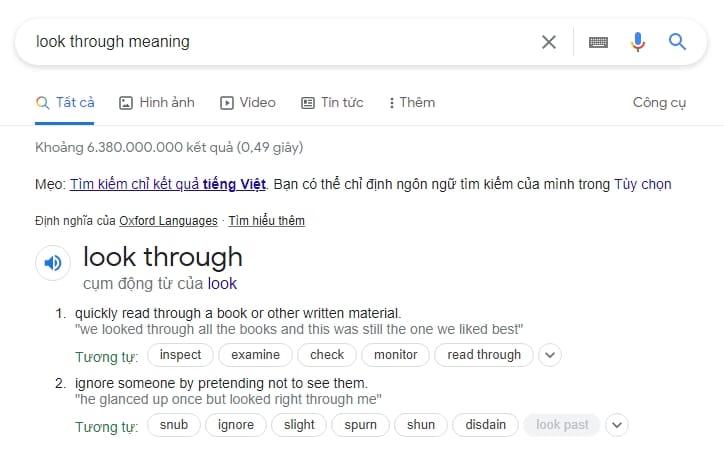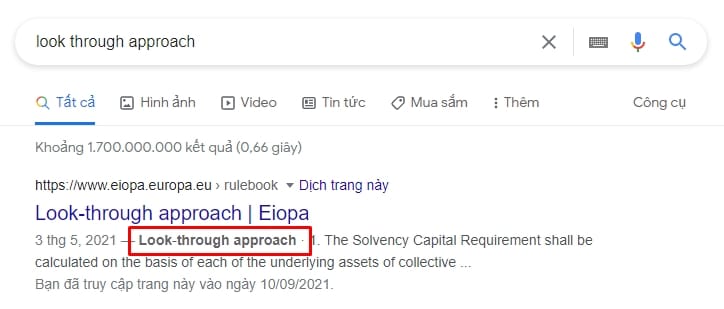Last week, AM VIETNAM held a Translation skills exchange workshop with 4th year students at the University of Foreign Languages (VNU). The majority of the questions discussed are quite practical and “current” in the industry.
This series of articles summarizes some outstanding topics. Part 1 will cover the issue of looking up terminology and how to deal with it effectively.
Issue 1: How to deal with terms that are difficult to search up
Terminology that is difficult to look up is a typical occurrence, particularly technical phrases or abbreviations. Many people spend many hours searching, researching, and even asking people who are deemed more knowledgeable yet do not receive a satisfying response.
So the challenge here is time, and how do you translate that term? Everything has a method.
#1: Block terms to uncover more opportunities
First, we must recognize this as a prevalent problem when translating papers. A frequent solution is to temporarily block or mark up the term while translating the rest of the document. This is a minor yet extremely useful tip.
If you continue to try to translate that term, you will have to trade time and project progress, and you may not receive any results. On the contrary, when you continue translating to additional information, you will most likely gain a better understanding of the context or have more hints for researching difficult terminology.
#2: Look up terms in the original text
Instead of wasting time looking elsewhere, the original document may have available bilingual terms that you can use right away. The source page will also provide additional context, allowing you to deduce the meaning of the term you are searching for. You already have the original document, so consult that first.
#3. Look up terms from bilingual sources
Today’s internet is brimming with digital content, including a wealth of high-quality and useful knowledge-sharing content. These will be the contents that we hope to reference. Who knows, maybe the term we’ve been looking for and can’t seem to translate has been placed somewhere by an expert.
To search from these multilingual sites, simply enter an additional search phrase in the target language, followed by the term you wish to look up. For example, to search for “rolling bearing” to see what does it mean in a target language, let say, Vietnamese in this case, we might use keywords such as ” rolling bearing là gì (what is rolling bearing), “rolling bearing kỹ thuật” (rolling bearing in technical),” or “rolling bearing vòng bi” (rolling bearing in Vietnamese).

#4. Look up terms by searching for longer phrases
When we face a tough term, we typically tend to just separate that term as a keyword to look up the term online. This will assist search engines identify the extent of your search. However, one thing that may happen is that you are splitting up the whole phrase. That means, instead of searching for the whole phrase, you choose to split it up to look up for single components and thus will not be able to reach the actual meaning of the original phrase.
What is this? For example, in the document we encounter the phrase “look through approach”. It is common that we consider “approach” a common word, so we will only look for the meaning of the phrase “look through”.
If your PC is open, you can test it. I bet you won’t discover anything if you simply search for “look through”. Now, check up the complete phrase “look through approach” – you’ll get the thing.
Thus, in some situations, we may misidentify the phrase we want to search up, resulting in a standstill. To avoid this, we can first look up the entire sentence that includes the difficult term. Then, gradually narrow it down to determine the exact search scope.


Conclusion
Finally, don’t forget to establish a dictionary that you can send to experts for feedback or have customers examine themselves. The glossary will allow you to govern the translation alternatives you’ve provided for key terms while also serving as a foundation for unifying the translation technique. The glossary also saves you time when searching for future projects.
For high-end translation jobs at AM Vietnam, a dictionary of words is a mandatory necessity. Therefore, it would be excellent to start into the habit of establishing and maintaining a glossary for each translation job now.







